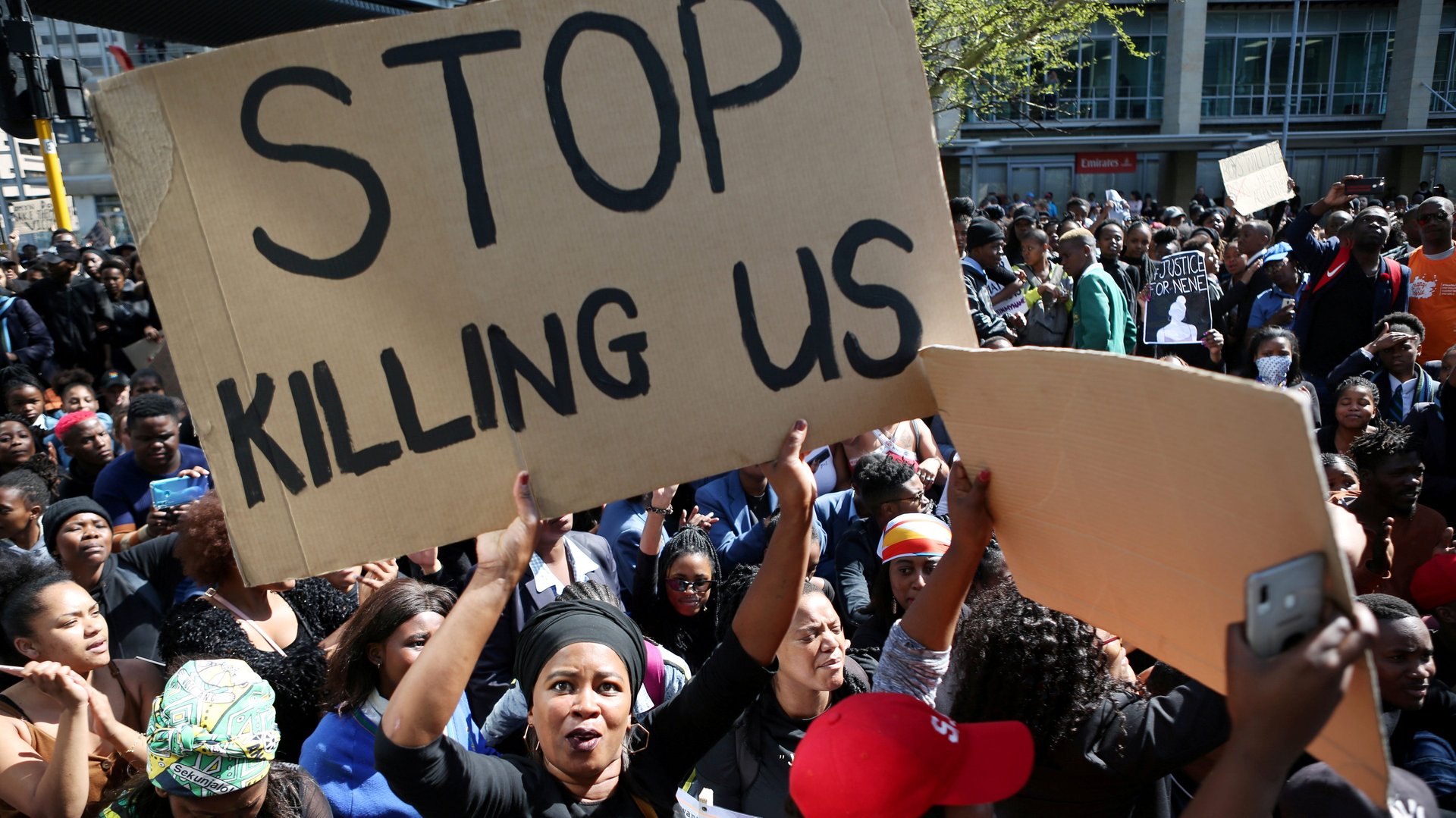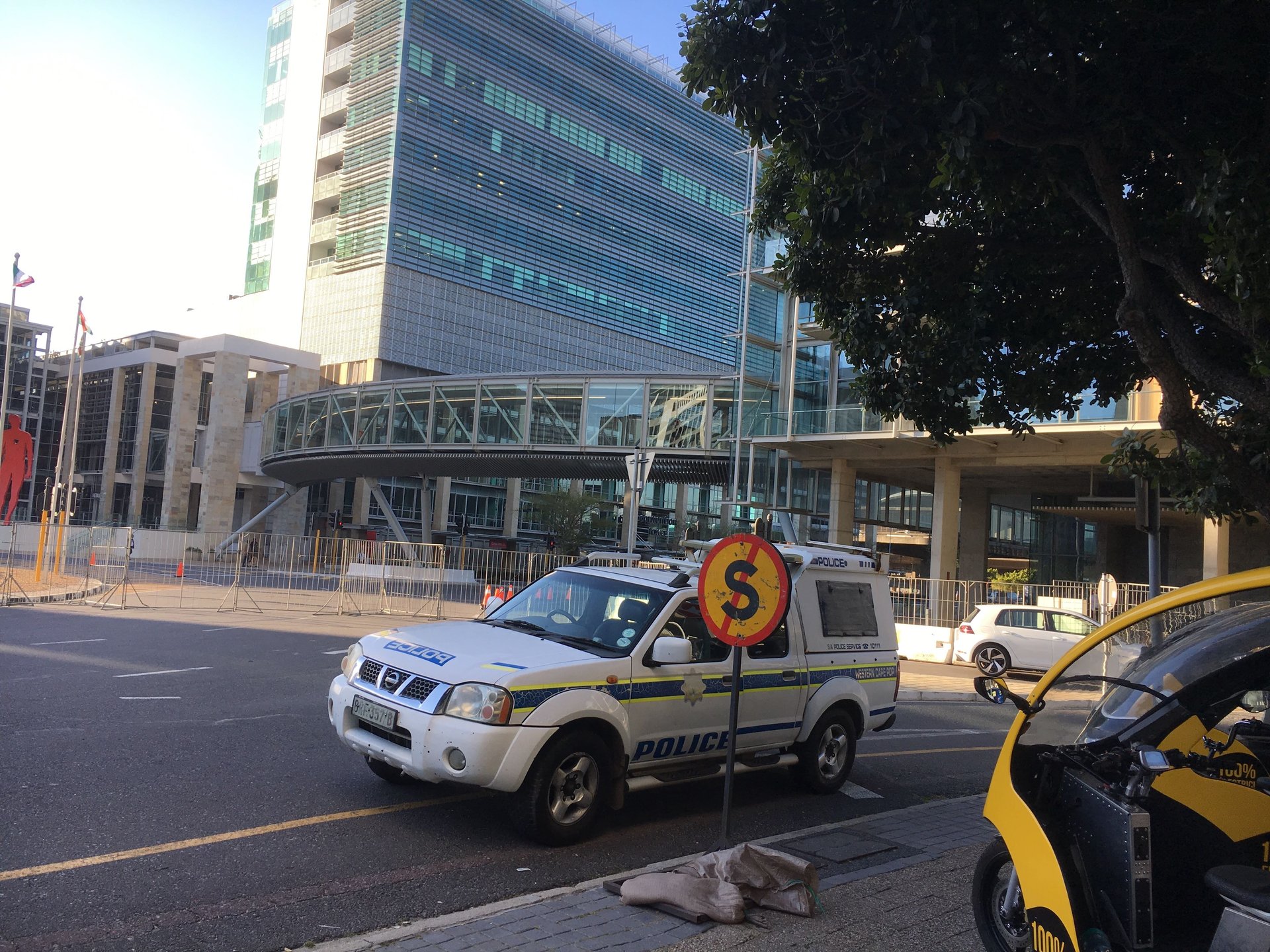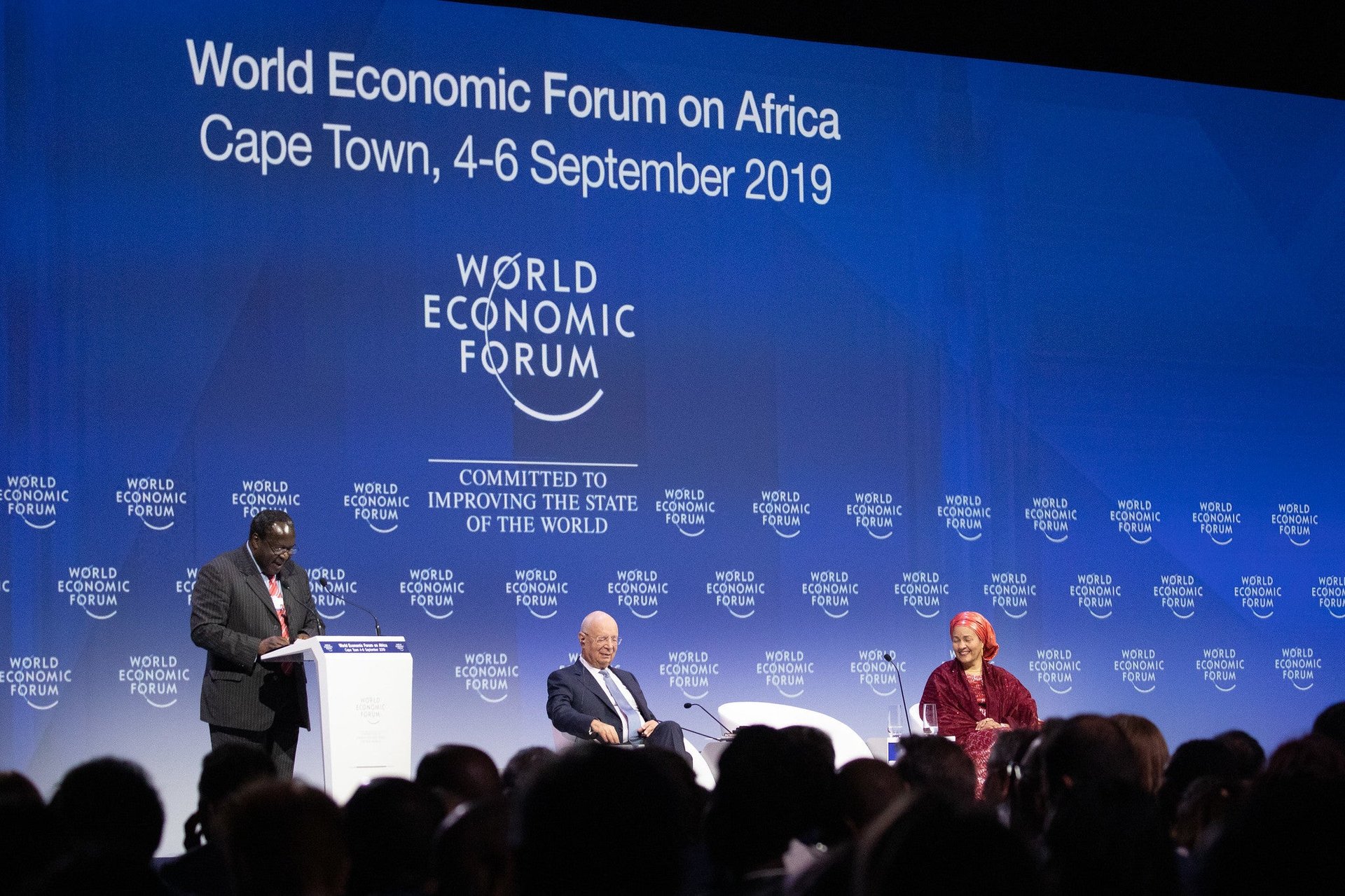How gender violence and xenophobia reset the agenda at Africa’s “Davos”
World Economic Forum events often have an air of exclusivity. Presidents, senior government officials, top executives of major multinationals and leaders of large NGOs all get together in Davos and around the world to expound on how to improve the future of our world.


World Economic Forum events often have an air of exclusivity. Presidents, senior government officials, top executives of major multinationals and leaders of large NGOs all get together in Davos and around the world to expound on how to improve the future of our world.
This year’s WEF Africa in Cape Town was looking to be another one of those with its theme: “Shaping inclusive growth and shared futures in the Fourth Industrial Revolution.”
But real world events in South Africa took over and replaced some of the inevitable pomposity and corporate-sponsored earnestness.
Just weeks before, South Africans had been shocked by the rape and murder of 19-year-old University of Cape Town student Uyinene Mrwetyana. What makes this more shocking is that it was not. The most recent statistics (2017/18) on sexual violence in South Africa are horrifying with a woman murdered every three hours. But the female students of UCT did not want to allow this to be normalized and picked WEF as the perfect spot to raise national and global awareness.
Hundreds of young women showed up with banners and placards outside the Cape Town Convention Centre forcing a security blockade. It had the powerful effect of redirecting conversations for attendees (when they finally made it inside).

WEF opened up a panel of leading women to highlight the scale of the problem. “I’m dumbfounded by the idea that we can continue with business as usual,” said Namhla Mniki-Mangaliso, director of African Monitor, who urged technology companies to take a lead in delivering solutions that help protect women. African Monitor will help establish a fund with multiple stakeholders to focus on tackling gender violence
Of course, the other crisis in South Africa this week was the latest wave of xenophobic attacks on the shops and businesses of African migrants in certain neighborhoods across Pretoria and Johannesburg.
Again, even though this has happened with depressing frequency since 2008, it changed the conversation at WEF. In part because social media misinformation had further inflamed an already terrible situation and led to reprisal attacks on South African businesses in other African countries. The official Nigerian WEF delegation, which was to be led by the vice-president, declined to attend in light of the attacks.
The opening plenary on the African Continental Free Trade Agreement was impacted by both crises. South Africa’s finance minister Tito Mboweni had to stand in for president Cyril Ramaphosa who pulled out so he could speak in parliament about the country’s gender violence problem.

With a topic like free trade, more open borders and stronger collaboration between African countries seemed the very opposite of these attacks on other Africans and Mboweni seemed to recognize this. “We welcome all Africans who have come to this conference; we welcome all Africans who live in South Africa. We are all Africans. We need to tell our people that what they are doing is wrong.”
Former Nigerian minister Oby Ezekwesili, who is best known these days for leading the Bring Back Our Girls campaign, was attacked on Nigerian social media for staying on after the government had supposedly withdrawn. Instead she argued to stay on to make the case for Nigerians who were supposedly being targeted in the riots.
At a hastily convened WEF panel on xenophobia attacks she said, “I have seen a lot of stories where people are saying Nigerians engage in criminal activities in South Africa. Well, I also know that is a single story because 18% of those that teach in higher institutions in South Africa are Nigerians.”
Sign up to the Quartz Africa Weekly Brief here for news and analysis on African business, tech and innovation in your inbox